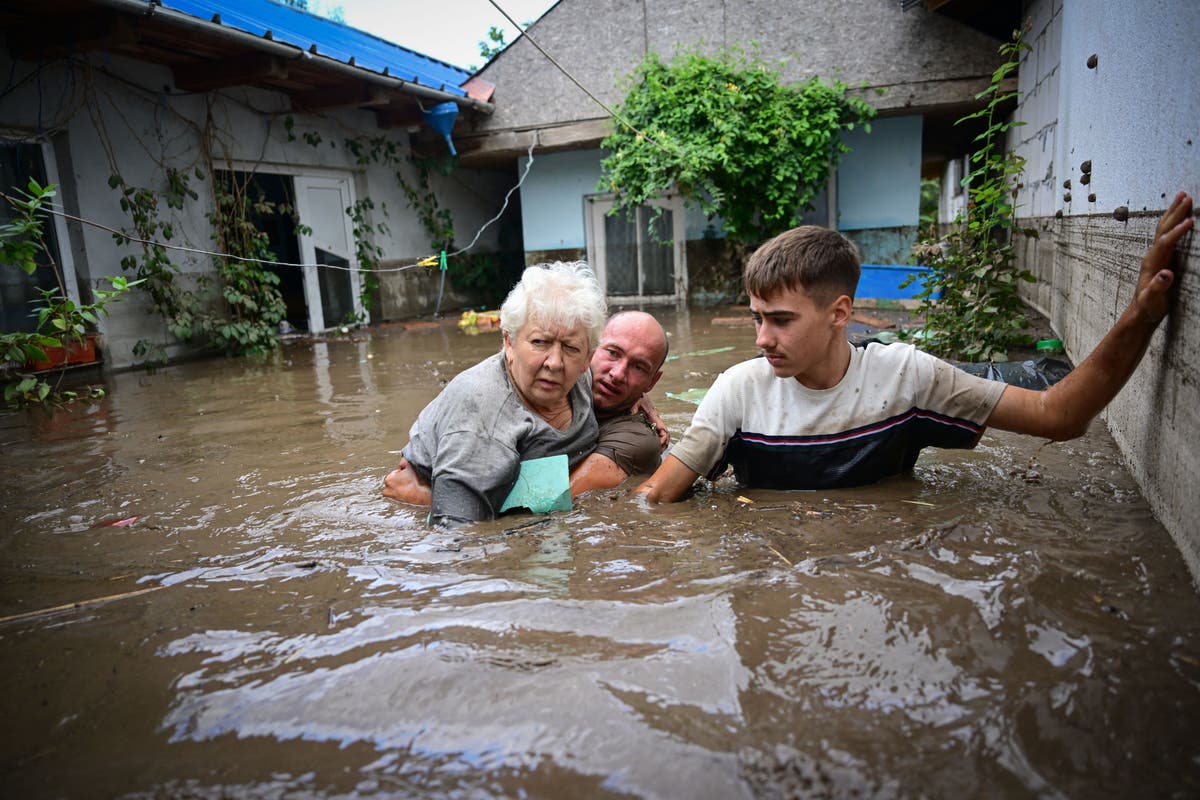The death toll across central Europe from the worst flooding in decades has risen to at least 16 after Storm Boris brought a month’s worth of rain in just 24 hours.
Tens of thousands of people have had to flee their homes and more rainfall is expected in the coming days with surging river levels putting authorities on high alert. Residents are bracing themselves for more disruption and danger.
Eight deaths were recorded over the weekend in Poland, Romania and Austria, where a firefighter was killed during a flood rescue operation.
A further eight deaths have since been recorded with five of those in Poland. One person drowned in the Czech Republic, and in Austria two people aged 70 and 80 died in the northeast of the country. The death toll is now thought to be at least 16 in total.
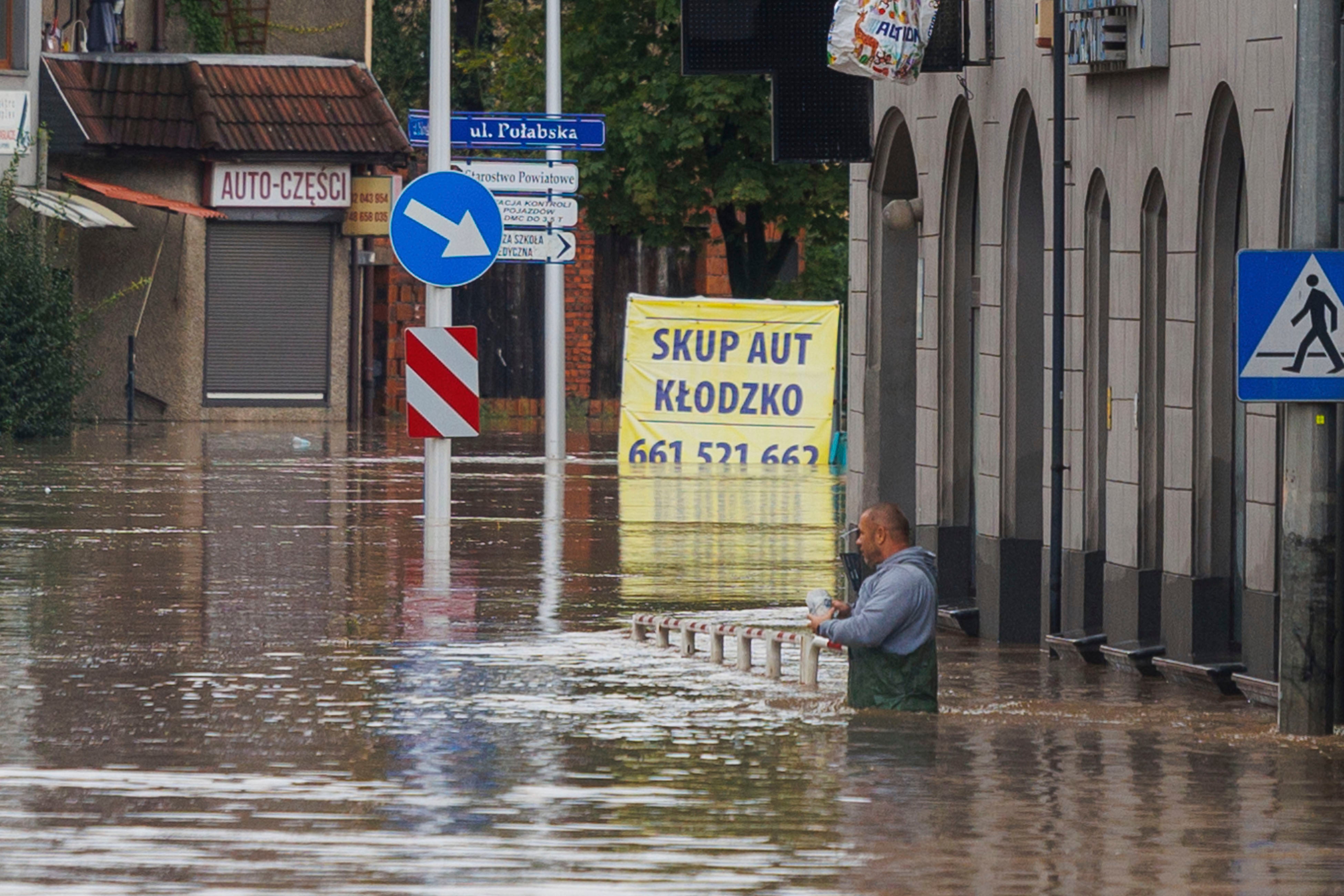
Poland’s prime minister Donald Tusk declared a 30-day “state of natural disaster” on Monday “to improve the efficiency of services and combat the effects of the flood”. It covers parts of the Lower Silesian, Opole, and Silesian voivodeships.
The Topola reservoir in the south of the country had overflowed, sending water gushing towards the village of Kozielno. Local authorities announced that residents from several nearby towns and villages would be evacuated. In Wroclaw, mayor Jacek Sutryk said that the city of 600,000 was preparing for peak water levels on Wednesday.
The Czech Republic has been battling some of the worst conditions with some areas seeing around three months’ rainfall in just three days. Litovel, a town roughly 140 miles east of the capital Prague, is around 70 per cent underwater – forcing schools and health facilities to close, its mayor said in a video on Facebook.
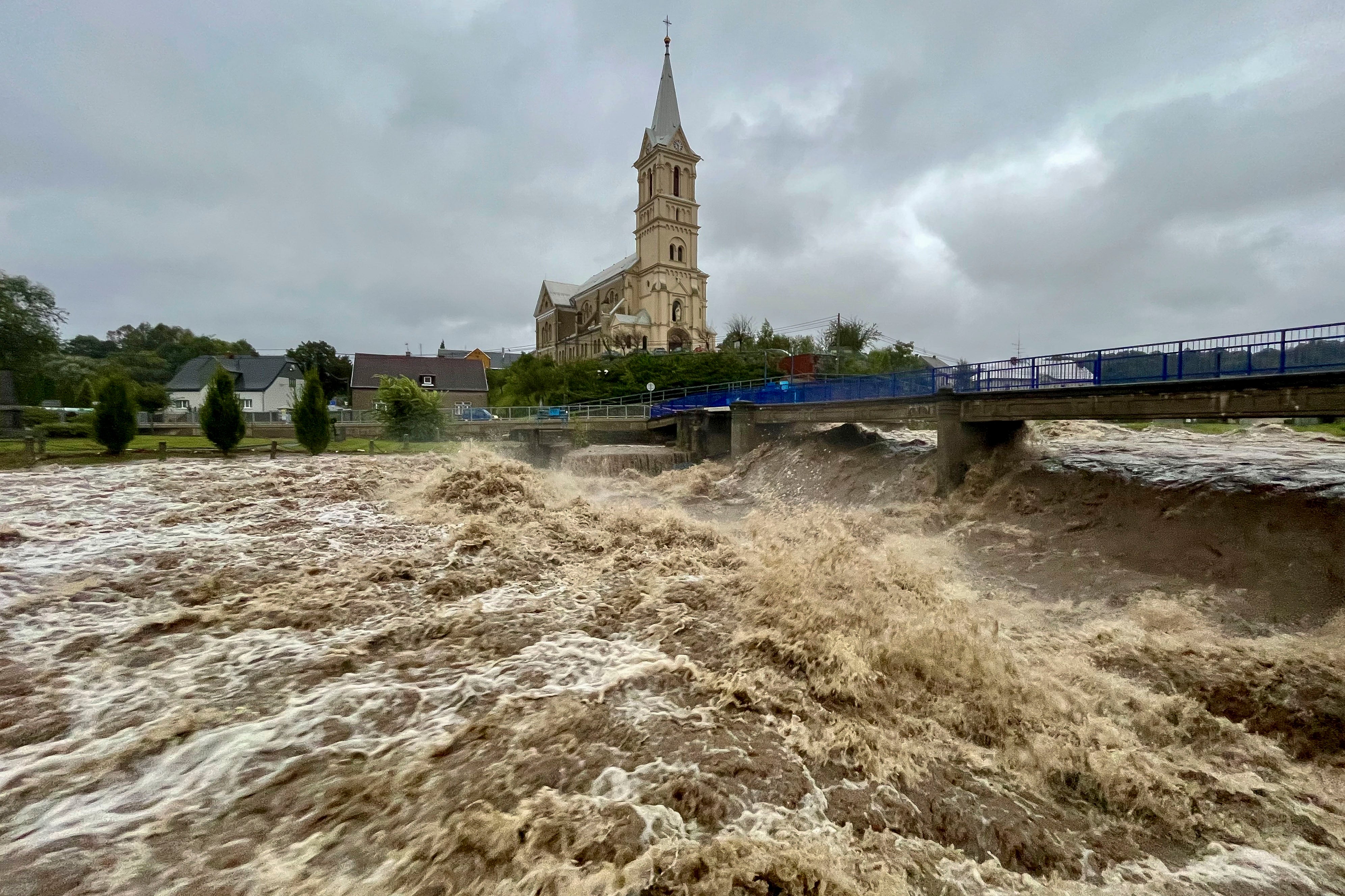
The Czech region of Silesian is around 80 per cent underwater, deputy mayor Miroslav Binar said on Monday. A spa town in the region, Jesenik, has been completely cut off by the floods with the mayor telling Czech Radio only three streets in the mountainous town of 11,000 people remained above water.
In eastern Romania, where villages and towns were submerged over the weekend, the mayor of Slobozia Conachi, Emil Dragomir, told Romanian television about the devastating human impact of the natural disaster. He said: “If you were here you would cry instantly because people are desperate … there were people who were left with just the clothes they had on.”
Slovakia’s capital, Bratislava, and Hungary’s capital, Budapest, were both preparing for potential flooding as the Danube River continued to rise.
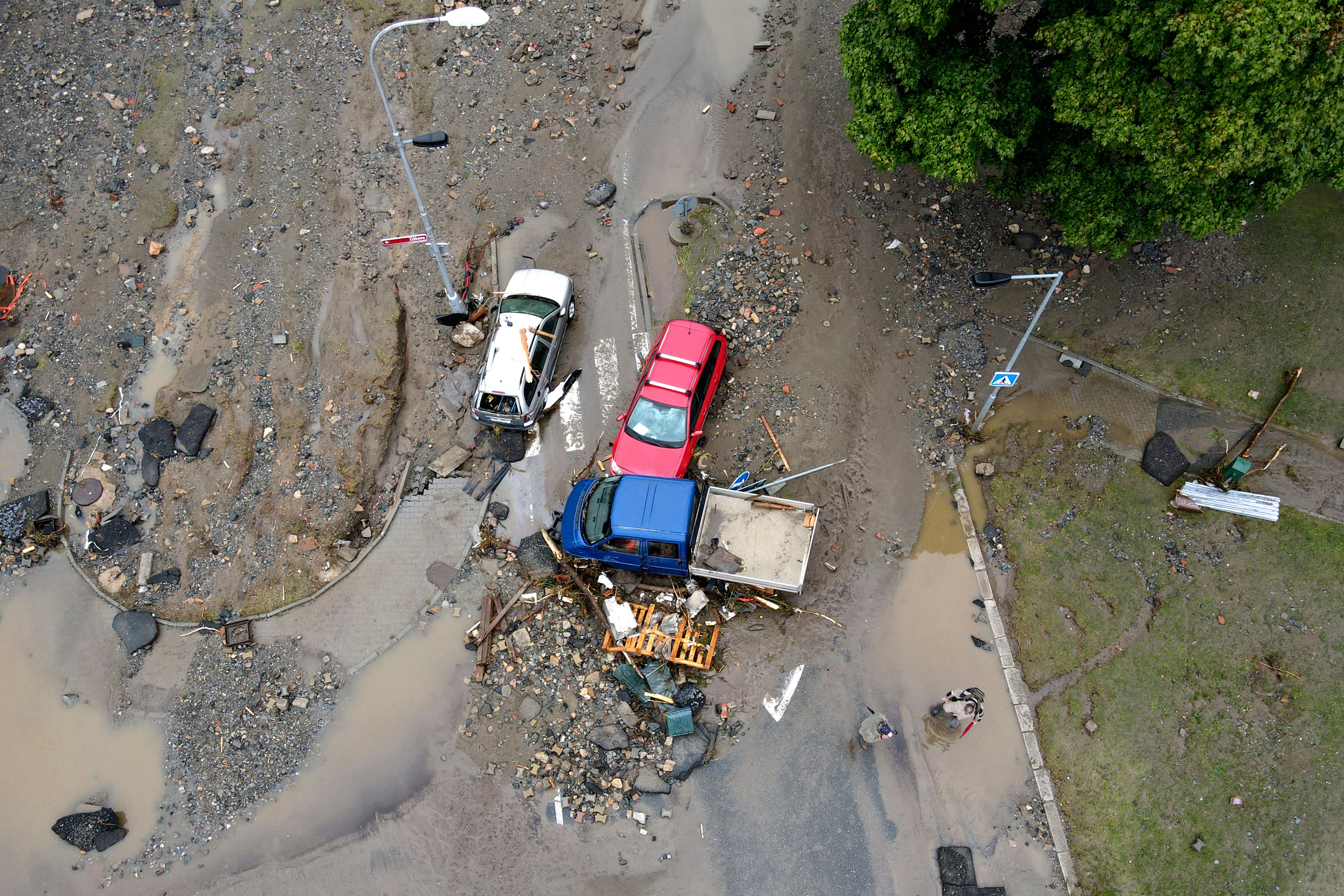
Hungarian interior minister Sandor Pinter reported that efforts were underway to keep the river and its tributaries contained, with up to 12,000 soldiers on standby to assist if needed. Hungarian prime minister Viktor Orban said that he had postponed all his international obligations “due to the extreme weather conditions and the ongoing floods in Hungary”.
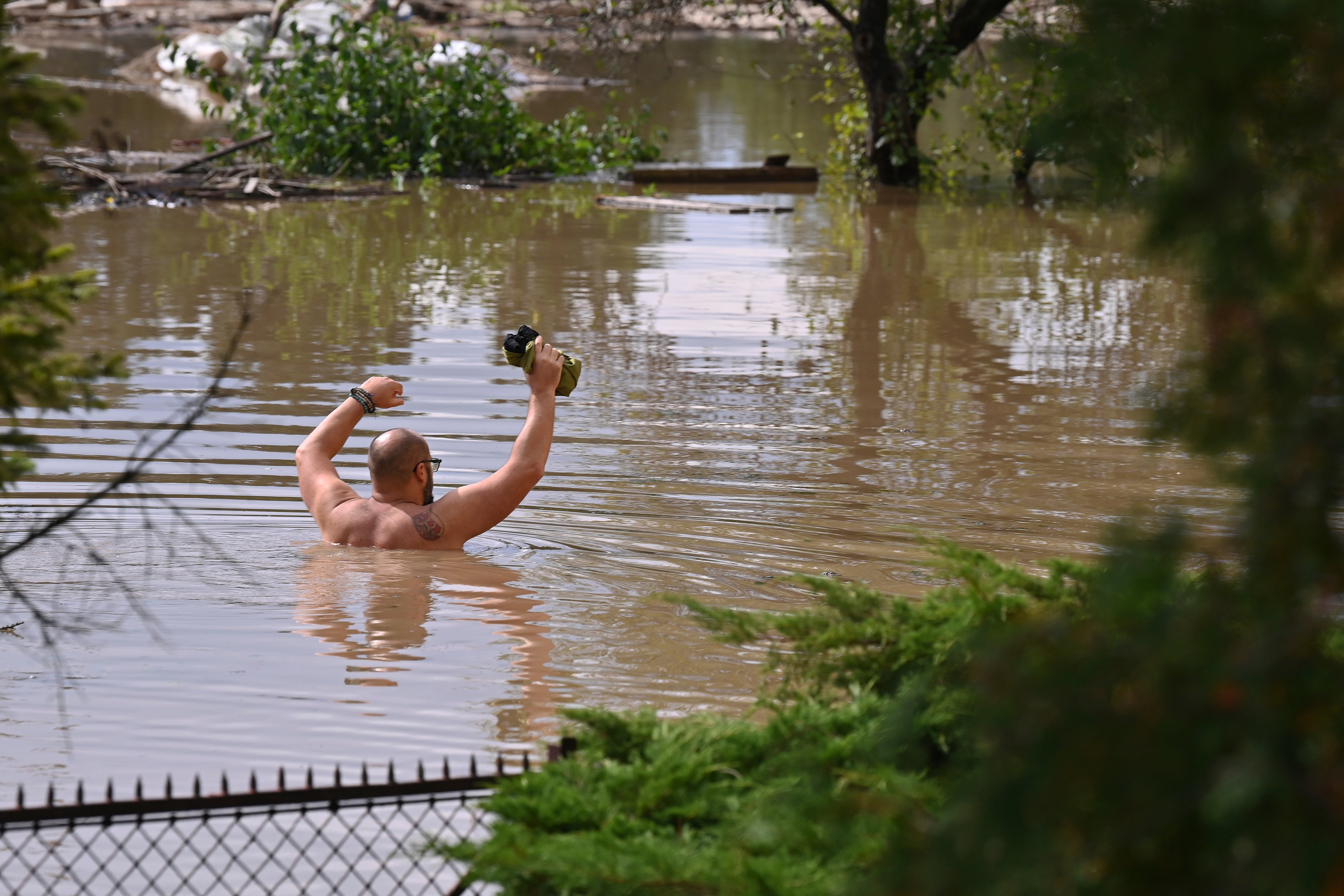
The horror has united both sides of the political spectrum with Hungarian opposition politician Péter Magyar saying national unity was needed as the country braces for flooding while welcoming the prime minister’s decision to cancel his planned travel to the European parliament.
In Austria, river and reservoir levels had dropped overnight as rain subsided, but officials warned of a second surge with heavier rainfall predicted.
The Green group in the European parliament said “These floods show that more than ever our fight against climate change is a common social and economic challenge we must tackle together.”

